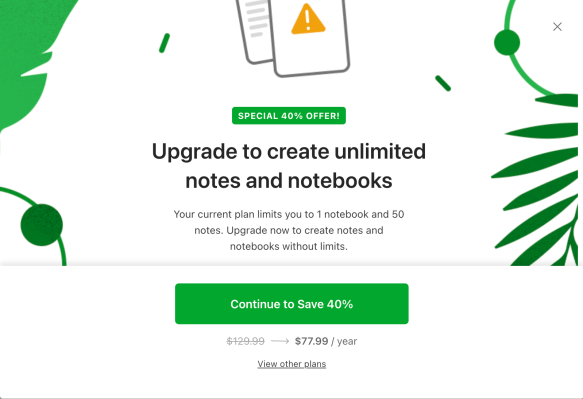
Days after Evernote started testing a free plan with access to only one notebook and 50 notes with limited users, the company has now made this its new default free plan. The notetaking app said that this change will be applicable for all new and existing free users starting December 4.
In a post on its blog, Evernote specified that users can delete content from their notebooks to add other content within the limit.
“From December 4, the Evernote Free experience has changed. Going forward, new and existing Free users will have a maximum of fifty notes and one notebook per account. These limits refer to the number of notes and notebooks a user can have in their account at one time: you can always delete unwanted content to remain below the threshold,” the company, owned by Milan-based Bending Spoons, said.
Users with more than 50 notes in their existing free accounts will be able to export additional notes and notebooks. Evernote mentioned on its blog that these restrictions will reflect on its compare plans page on December 4, but didn’t specify if limits or pricing of other plans are also changing.
Earlier this week, Evernote confirmed to TechCrunch on its website that the new limited-free plan was part of a test with “less than 1% of its free users.” The test was trying to get people to pay the higher limit plans, which are priced at $14.99 and $17.99 per month.
The company said that most free users fall below the newly set limit. However, Evernote acknowledged that this change might push customers towards “reconsidering” their “relationship with Evernote.”
After Bending Spoons acquired Evernote in November 2022, the company laid off 129 people in February 2023. At that time, a spokesperson told TechCrunch that the notetaking app has “been unprofitable for years and the situation was unsustainable in the long term.”
While Ian Smalls, who was appointed Evernote CEO in 2018, managed to get the company to $100 million in recurring revenue, the app has fallen behind newer competitors like Notion.
For users who might want to look for alternatives, Notion, Microsoft OneOne, and Zoho Notebook offer generous free tiers.
techcrunch.com




